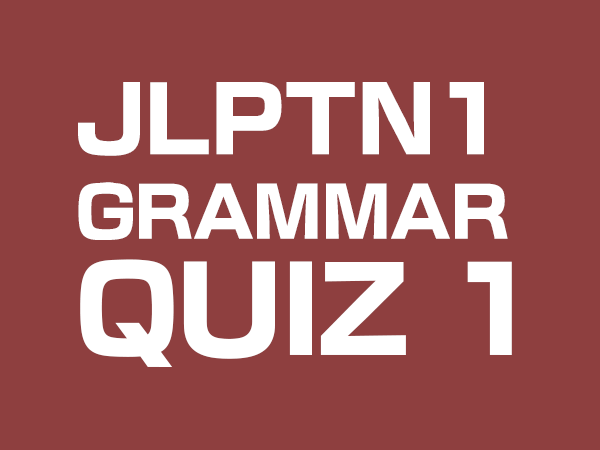日本語能力試験N1の文法パターンを使った選択問題です。この問題に答えるときは、それぞれの文の全体的な意味を理解することが大切です。それぞれの文脈に最も適した選択肢を選んでください。
Results
Better luck next time!
#1. まだ準備ができていない[_______]、無理に始める必要はない。現代社会では、計画的に行動することが重要です。準備が整っていない状態で無理に始めることは、逆に問題を引き起こす可能性があります。例えば、プロジェクトの開始前に必要な資料や情報を十分に集めていない場合、計画が遅れることがあります。したがって、準備ができていない状況では、無理に始めるよりも、準備を完了させることが優先されるべきです。このように、まだ準備ができていないくらいなら、無理に始める必要はない。
「まだ準備ができていないくらいなら、無理に始める必要はない。」となります。この表現は、「まだ準備ができていないほどの状況であれば、無理に始める必要はない」という意味を持ちます。「くらいなら」は、ある程度や状況を示す表現で、その程度や状況が存在する場合に特定の行動をとるかどうかを示します。
“If you’re not ready yet, there’s no need to force yourself to start.” This expression means, “If the situation is such that you are not ready yet, there is no need to force yourself to start.” “Kora-nara” is an expression that indicates a certain degree or situation, and indicates whether or not a certain action will be taken if that degree or situation exists.
Correct Answer Explanation
B. くらいなら
This option is correct because:
- くらいなら: This phrase means “if it is to the extent that” and accurately conveys the idea that if the preparation is not yet complete, there is no need to forcefully start. The sentence “まだ準備ができていないくらいなら、無理に始める必要はない” means “If you are not ready yet, there is no need to force yourself to start.”
Incorrect Options Explanation
A. くらいのものだから
- くらいのものだから: This phrase means “because it is something to the extent that.” While it is grammatically correct, it does not fit the context of the sentence. It suggests that the reason for not starting is because of the extent of the preparation, rather than the fact that the preparation is not yet complete.
C. くらいのことなら
- くらいのことなら: This phrase means “if it is a matter to the extent that.” While it is grammatically correct, it does not fit the context of the sentence. It suggests that the matter of preparation is not yet complete, but it does not convey the idea of not forcing oneself to start.
D. くらいのことだから
- くらいのことだから: This phrase means “because it is a matter to the extent that.” While it is grammatically correct, it does not fit the context of the sentence. It suggests that the reason for not starting is because of the extent of the matter of preparation, rather than the fact that the preparation is not yet complete.
Summary
The correct answer is option B because it accurately uses the phrase “くらいなら” to convey the idea that if the preparation is not yet complete, there is no need to forcefully start. The other options use phrases that are either grammatically correct but do not fit the context of the sentence or do not accurately reflect the original sentence’s meaning.
JLPT N1 Vocabularies and Grammars
- まだ (まだ): Still, yet
- 準備 (じゅんび): Preparation
- できていない (できていない): Not ready, not completed
- くらいなら: If it is to the extent that
- 無理に (むりに): Forcibly, by force
- 始める (はじめる): To start
- 必要 (ひつよう): Necessity, need
- 計画的に (けいかくてきに): Systematically, planned
- 行動 (こうどう): Action
- 重要 (じゅうよう): Important
- 状態 (じょうたい): State, condition
- 引き起こす (ひきおこす): To cause, to bring about
- 可能性 (かのうせい): Possibility
- プロジェクト (ぷろじぇくと): Project
- 開始 (かいし): Start, commencement
- 必要な (ひつような): Necessary
- 資料 (しりょう): Materials, documents
- 情報 (じょうほう): Information
- 集める (あつめる): To gather, to collect
- 十分に (じゅうぶんに): Sufficiently, adequately
- 遅れる (おくれる): To be delayed
- 優先 (ゆうせん): Priority
- されるべき (されるべき): Should be








